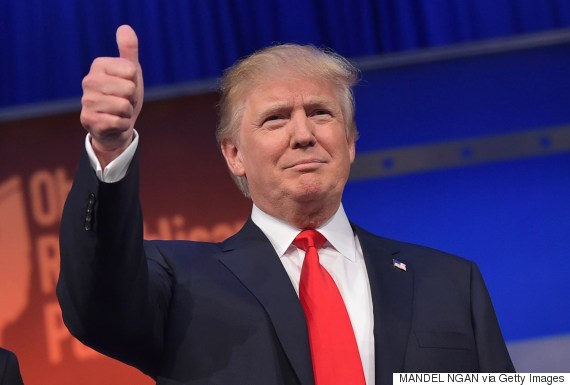Why Did the US Fail to Predict ‘Candidate Trump?’
The next morning, the editor and former cultural director, who oddly enough had never set a foot inside politics, swept the stakes with the closest guess of 140.
We weren’t the only ones wrong. The Blue House political affairs committee fathomed a guess of around 143 to 145 seats, but after losing with 121 seats, a seat less than that of the Democratic Party, resigned (nobody was held accountable of course). Such a huge failure to predict is a disaster in that field. The polling agency pointed out that this error was due to the use of now obsolete landline telephones. The bigger issue, however, was in groupthink. The more involved one is in politics, the more one focuses on the opinions of those who share the same sentiment, becoming oblivious to the public sentiment that is about to boil over.
The same thing has happened in the United States. Last June, no one took him seriously when the potty-mouthed billionaire Donald Trump announced that he was going to run as the Republican presidential candidate. Even the election guru Nate Silver, who had forecast the re-election of President Barack Obama, predicted that it was unlikely that Trump was going to last long in the race.
Every time Trump came up with ridiculous populist policies, such as suggesting the installment of a wall on the U.S.-Mexico border to put an end to illegal immigration, the mainstream conservatives criticized him for disgracing the Republican Party. On the 26th of last month, Trump won five states in the Northeast and stated that he was the real candidate, enveloping the American elite in an atmosphere of disbelief.
The New York Times columnist David Brooks also expressed surprise. By hanging out with other bourgeoisie professionals who share the same social status and background as he does, Brooks overlooked others who have benefited less from American society. Some 75 percent of voters who support Trump voice the fact that life is becoming increasingly difficult, and social trust has hit rock-bottom with millennials. Trump has used this suffering and anger to his advantage.
The problem with the fact that election predictions are being overturned by the upper class, by the elites with vested interest, and with the anger against wealth and globalization is not just our problem. It’s a global trend meant to punish the arrogant vested interests; the fall of the Saenuri Party, which exerted supremacy in the TKK regions (Daegu-Gyeongbuk, Gangnam), and the resulting rise of the two opposition parties, was such an example.
Last year in the U.K., a 66-year-old militant socialist named Jeremy Corbyn, nominated simply “to broaden the debate,” was unexpectedly elected the leader of the Labor Party. This was a blow to former Prime Minister Tony Blair who had warned that the party will face “annihilation” with Corbyn, a radical leftist, as leader.
It has been analyzed that in an era of anti-politics, the crude words of the anti-hero convey authenticity that is worshiped specifically by low-income, low-skilled, uneducated men. That’s not all, however. The Economist reported that exit polls show Trump won the support of 34 percent of the middle class that earn more than $100,000, and 43 percent of college graduates and postgraduates. The public opinion polls differ from actual voting because of face-to-face surveys. Trump supporters who couldn’t publicly state that they’re voting for the hated Trump voted for him in the voting booth with peace of mind. This could mean President Trump is a real possibility!
Trump, bizarre as his hairstyle is, has said, “South Korea is a money machine but they pay us peanuts... South Korea should pay us very substantially for protecting them,” and suggested that we arm ourselves with nuclear weapons for our own defense against North Korea. This is not something to listen to lightly. Mainstream newspapers like the New York Post have praised him as being correct. Democratic presidential hopeful Hillary Clinton has stated that her strong point is foreign affairs and therefore has the support of foreign leaders, but foreigners do not elect American presidents. Furthermore, Clinton is seen as an elite avatar who lacks authenticity – it’s possible that election results may upset the predictions.
Even if Trump doesn’t make it to the presidency, such an agenda promoted by the populist politician is likely to be adopted as policy. It has either reached the right moment or touched the voters’ hidden desires, which is why populism is so dangerous. We are living in a world where America’s democracy and the fall of conservatism could unsettle our own country.


